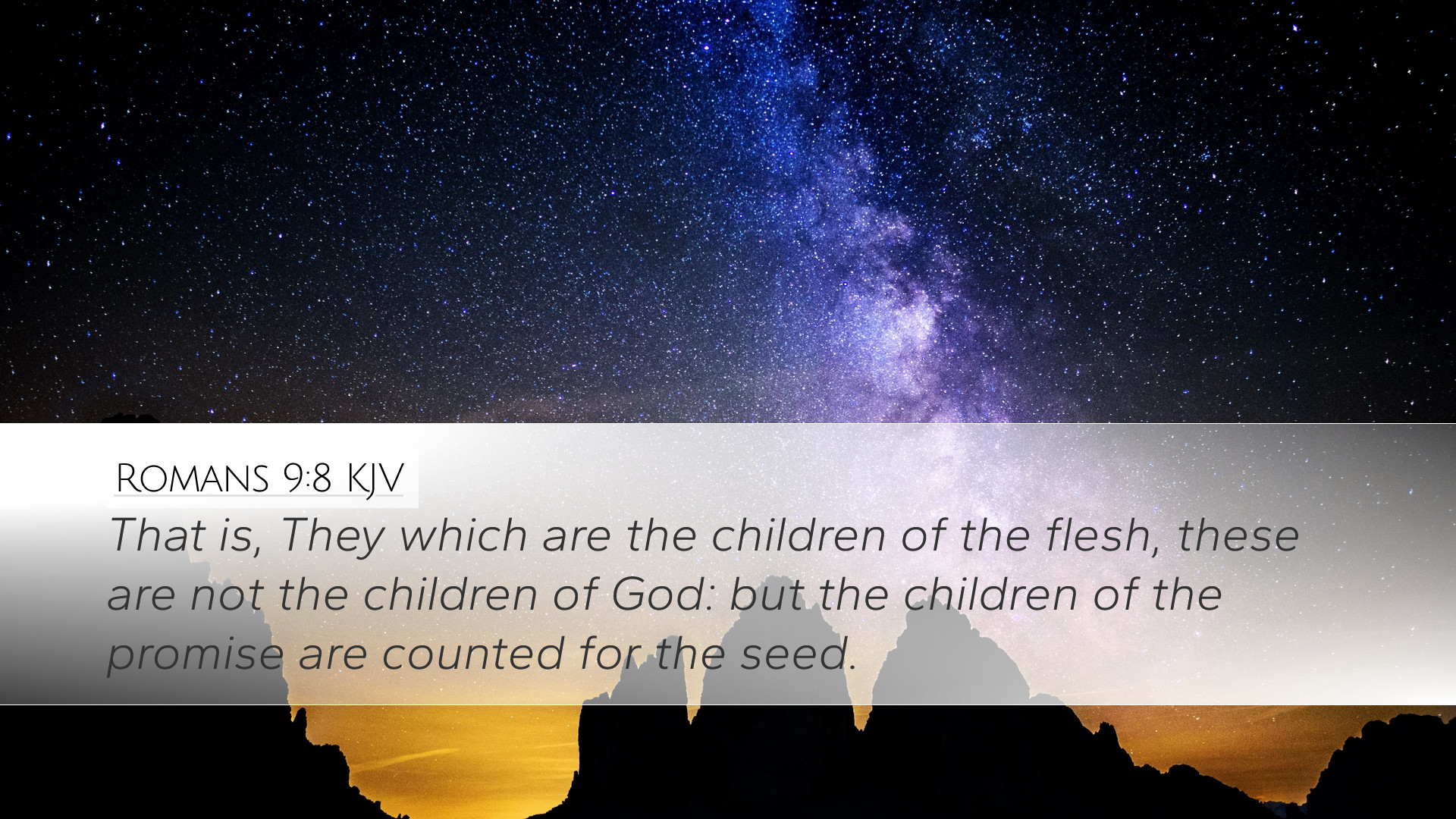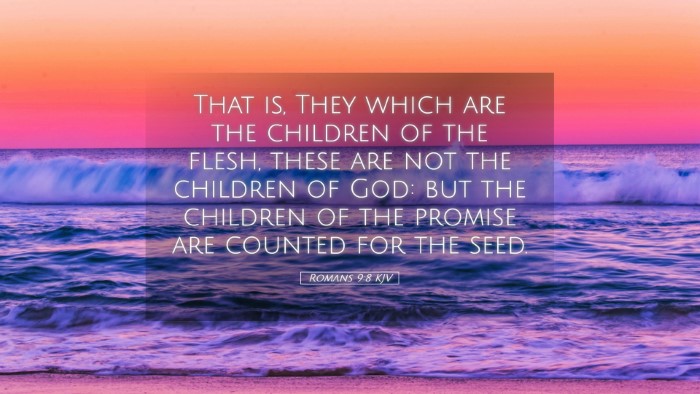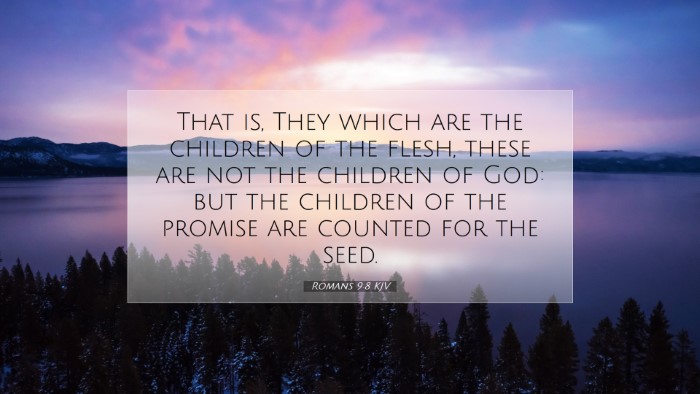Romans 9:8 Commentary
Bible Verse: Romans 9:8 - "That is, they which are the children of the flesh, these are not the children of God: but the children of the promise are counted for the seed."
Introduction
The Apostle Paul's epistle to the Romans is one of the most theological significant letters in the New Testament. In Romans 9, Paul addresses the issues of God's sovereignty, election, and the distinction between physical descent and spiritual adoption. Romans 9:8 succinctly encapsulates the core message of God's covenantal relationship with His people and the basis for His election.
Contextual Background
In this chapter, Paul expresses his deep sorrow for the Israelite people, exploring the theme of Israel’s unbelief and God’s faithfulness to His promises. Paul seeks to clarify that not all who are descended from Israel belong to Israel, and he uses the example of Isaac and Ishmael to illustrate this point.
Theological Insights
Distinction Between Flesh and Promise
Matthew Henry emphasizes that the flesh refers to natural birth, while the promise pertains to divine selection and covenant. Henry notes that "the children of the flesh" are those who trace their lineage back to Abraham through physical descent, yet Paul’s argument highlights that such descent alone does not constitute a relationship with God. The promise of God creates His true children.
Reflection of God’s Sovereignty
Albert Barnes states that this verse demonstrates God's sovereign choice in determining who His children are. He asserts, "The purpose of God will stand," which emphasizes that God's will transcends human effort and lineage. This idea prepares the reader for understanding God's larger plan of salvation that includes both Jew and Gentile.
Children of the Promise
Paul's assertion that "the children of the promise are counted for the seed" presents a critical theological point regarding faith versus lineage. Adam Clarke expounds on this phrase by noting that the promise is both spiritual and redemptive. Clarke writes, "The true seed of Abraham consists of those who share Abraham's faith, thereby participating in God’s promises." This expands the idea of inheritance from merely physical to a faith-based relationship.
Implications for Understanding Election
This passage has profound implications for understanding divine election. The distinction made by Paul indicates that God’s election is based on His purposes rather than human merit or descent. This perspective invites pastoral reflection on the inclusivity of the Gospel, reminding us that faith, not ethnicity, is the path to being counted as God's children.
Historical Context: Abraham's Seed
- Abraham's Faith: The original promise made to Abraham was rooted in faith. Just as Abraham believed God, those counted as children of God must also act in faith.
- Covenantal Relationship: The covenant established with Abraham (Genesis 12:1-3, 17) is crucial to understanding the nature of the promises. God’s promises extend beyond Abraham’s biological descendants to those who share in the faith of Abraham.
- Understanding the Term 'Children': The term 'children' in this context refers to a new identity formed through covenant rather than mere biological lineage.
Practical Applications
Pastors and theologians can draw several practical applications from Romans 9:8:
- Inclusion in the Family of God: Emphasizing the open invitation of the Gospel to all who believe reinforces the truth that anyone can be part of God’s family.
- Faith in Action: Encouraging believers to live out their faith is essential; true identity as children of God is demonstrated through a life lived in alignment with God's promises.
- Teaching on Election: Educating congregations about the nature of divine election helps demystify misconceptions and highlights God’s sovereignty and grace.
Conclusion
Romans 9:8 serves as both a theological anchor and a source of hope for believers. It rightly emphasizes that our value and identity stem not from human lineage but from God’s sovereign choice and promise. As we reflect on this scripture, we find profound encouragement in the assurance that through faith, we are counted as God's children, inheriting the promises associated with His covenant.


